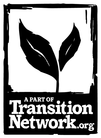Over the last few years, I've been thinking about the lack of elderhood in our US culture. My interest has led to scattered reading and wondering that has wound through conferences, workshops, encounters with others, and lately coming to reading a book called Come of Age by Stephen Jenkinson. It doesn't prescribe nor explain about Elderhood, as I had assumed, but rather directs me, the reader, to a focus not on the topic at hand so much, but rather on life, my life, and the unfolding of it. For after all, doesn't the accumulated learning and revelations of a lifetime constitute an elder?
Yes, and yet, focusing on this accumulation as if contained within a jeweled box we call wisdom takes us away from the heart of the matter. As a person – old or at any age, I am not simply a collection of accumulated experiences and points of view, nor any list - however long - of characteristics and traits. This I that I am - I’ve learned over the years – is far more complex, and encompasses so many more perspectives than can be articulated. The dawn of a clear morning or an incoming mist that shrouds the neighboring hillsides proclaims – if I am aware of it – the temper of my day. How many more effects are there that constitute – really – who I am at any time of the day or night. They are beyond limit.
Like so many of my fellow elders, this elder was waiting to be told, to be acknowledged, to be recognized as an elder, which I now take to mean I am growing old waiting to be told I’m an elder. Mr. Jenkinson voices the observation that in these times there are more old people living than ever, and yet with the exception of indigenous peoples, there are very few elders.
The traditional means of younger looking to elder for counsel is not in evidence. Old people are just old people. The young think, I can counsel myself, which brings to mind an old saw. He who counsels himself has a fool for counsel. Nevertheless, the trend dominates. Why? Is it a loss of respect for tradition? An arrogance typical and at the same time respected of young minds wishing change? A lack of trust (understandably) for those in command? (old people) A distance between generations so great, virtually no communication is possible? A sign of indifference of the times? These need further exploring.
The author – if I may - takes a fairly voluminous book to consider viewing oneself as the basis of Elderhood, for that is the genuine origins of Elderhood. In essence, I assume not my elderhood, but that I am. A life of I am are bits and pieces; basics and decorations, fundamentals and superfluities all lumped together awaiting to be expressed. This attempt at writing, for example, this individual bundling of snippets, along with others’ bundles of snippets, collectively, serve as energies that drive change. Perhaps, it may even serve to help reinstate Elderhood in America.
-----Greg Marquez




